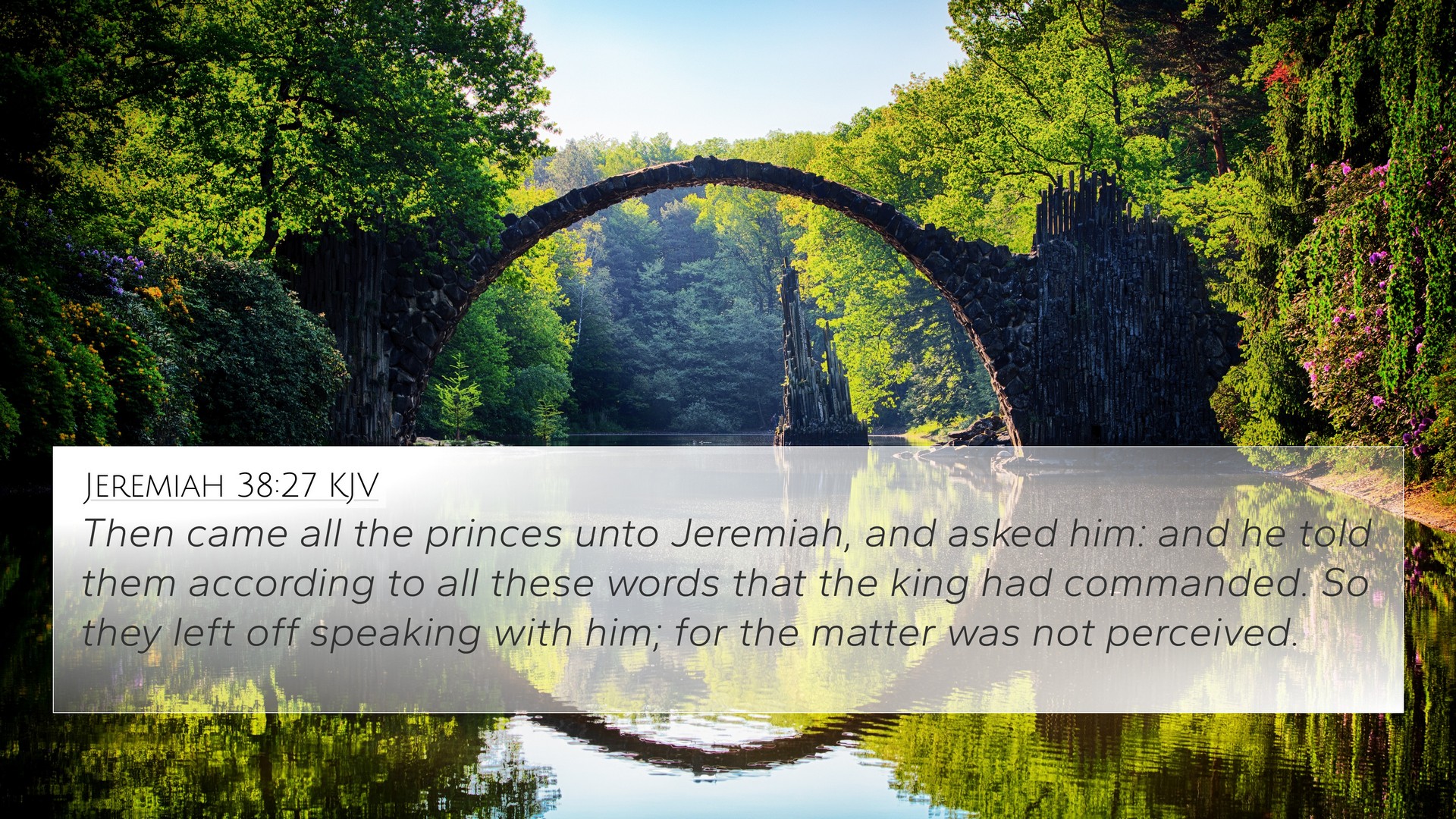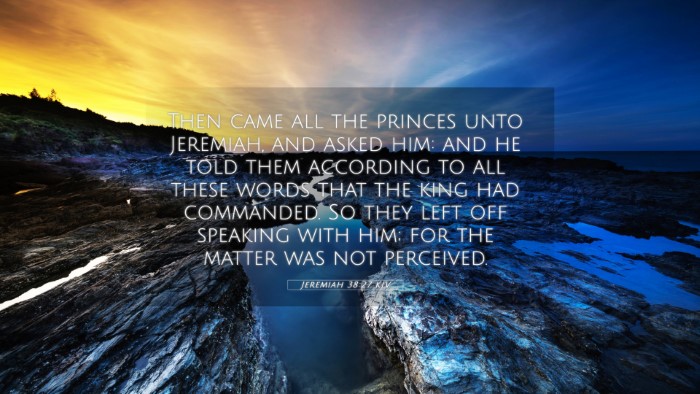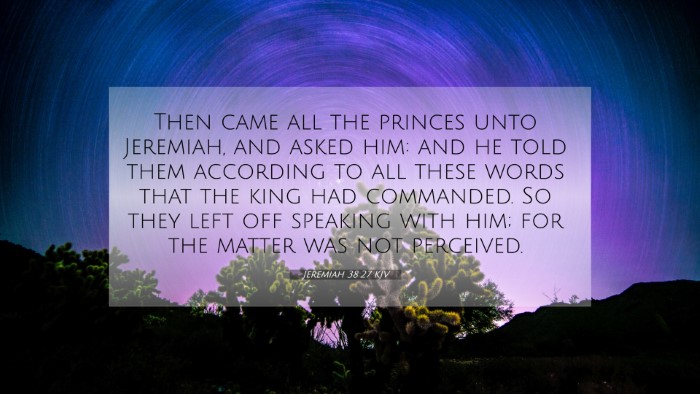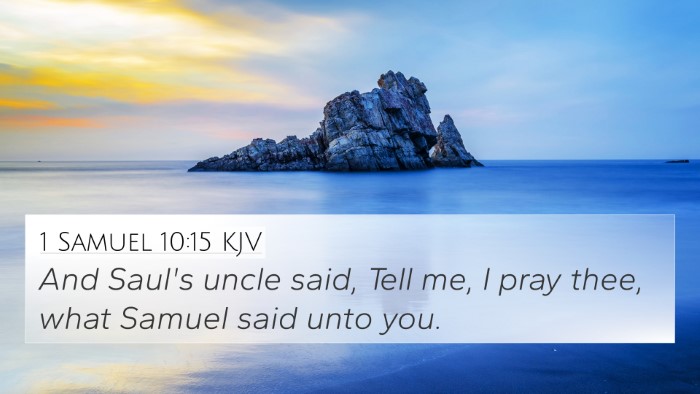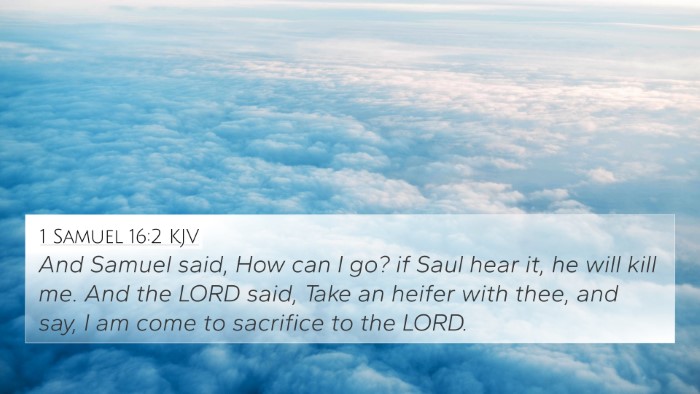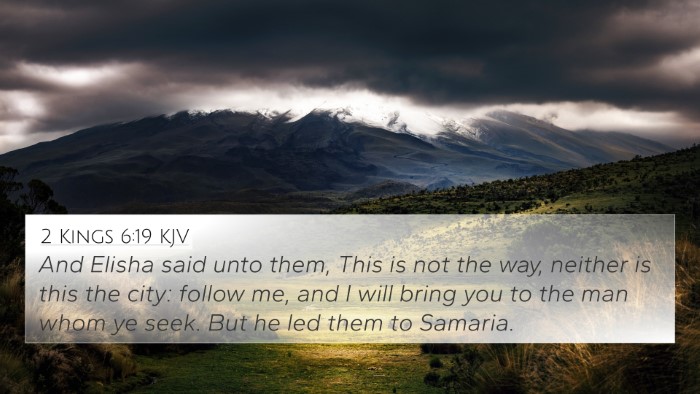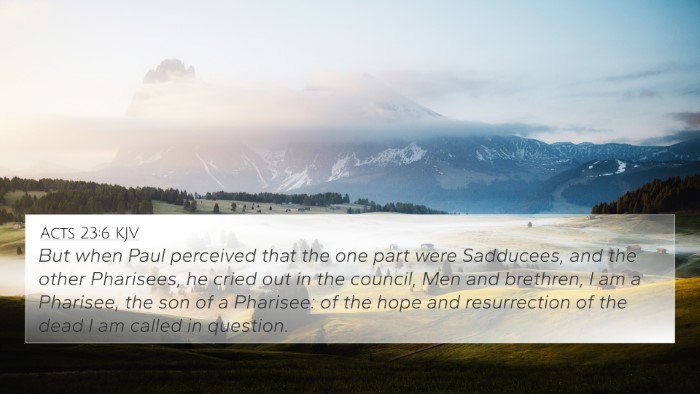Understanding Jeremiah 38:27
Verse Reference: Jeremiah 38:27 (KJV)
This verse occurs in a pivotal moment where the pressure of political and social turmoil enveloped Jerusalem. The Hebrew people faced impending doom as Nebuchadnezzar's forces laid siege to the city. Jeremiah, the prophet, had been imprisoned for speaking the truth about the coming judgment.
Summary of Jeremiah 38:27
The verse reads:
"Then came to Jeremiah the princes, and asked him; and he told them according to all these words that the king had commanded: So they left off speaking with him; for the matter was not perceived." (Jeremiah 38:27 KJV)
Key Themes and Insights
-
Political Pressure:
The princes' inquiry into Jeremiah's message indicates the immense pressures of leadership during tumultuous times. They seek confirmation of their fears regarding the Babylonian siege.
-
Courage of the Prophet:
Despite the personal danger it posed, Jeremiah remained committed to relaying God's message. His faithfulness exemplifies the role of a true prophet in difficult circumstances.
-
Obedience to God’s Command:
This verse highlights Jeremiah's obedience to God. He communicated the message without alteration, a trait noted by commentaries such as Matthew Henry, emphasizing the integrity required in prophetic ministry.
-
The Response of Leaders:
The princes' “not perceived” response shows their disconnection from spiritual matters, which Adam Clarke notes reflects the broader state of rebellion against God’s warnings among the leaders of Judah.
Bible Cross-References
To understand the full context and implications of Jeremiah 38:27, several cross-references help illuminate its themes:
- Jeremiah 1:19 - A prophecy about opposition to God’s messages.
- Jeremiah 26:8 - Jeremiah faced threats for prophesying, similar to his situation in chapter 38.
- Ezekiel 3:7 - God's people often resisted His message, highlighting a repetitive theme of rejection.
- Matthew 10:16-20 - Jesus foretells of future persecution for His prophets.
- 2 Timothy 4:2 - Paul encourages preaching the word succinctly, regardless of circumstances.
- Lamentations 2:9 - Reflects on the consequences of ignoring prophetic warnings, tying back to Jeremiah’s experiences.
- Acts 7:51 - A New Testament reflection on the historical pattern of resisting God's servants.
Comparative Analysis
This verse serves as a moment of crossroads in the narrative of Jeremiah, drawing cultural and theological connections throughout the Biblical text.
-
Thematic Connections:
Jeremiah 38:27 shares themes of obedience under pressure, which can be seen in the lives of other prophets such as Daniel (Daniel 6) and Ezekiel, showcasing a broader narrative of faithfulness amidst adversity.
-
Linking with New Testament:
The experience of prophecy and rejection recurs in the New Testament, notably in Jesus’ teachings on the cost of discipleship, emphasizing how these themes transcend the eras.
Tools for Bible Cross-Referencing
Understanding the connectivity between scripture can enhance the depth of personal study or sermon preparation. Here are some suggested tools to assist in cross-referencing:
- Bible Concordance: Essential for locating specific verses based on keywords.
- Bible Reference Resources: Books or web applications that compile various references by thematic connections.
- Cross-Reference Bible Study Guides: Helpful for systematic study and thematic exploration across different books of the Bible.
- Comprehensive Bible Cross-Reference Materials: Resources that offer insights into inter-biblical dialogue.
Conclusion
Jeremiah 38:27 encapsulates the prophetic struggle against the backdrop of national turmoil and rejection. The interplay between divine messages and human resistance invites readers to explore deeper truths within the Scriptures. Through cross-referencing and comparative analysis, believers can uncover layered meanings and applications of God's word.
